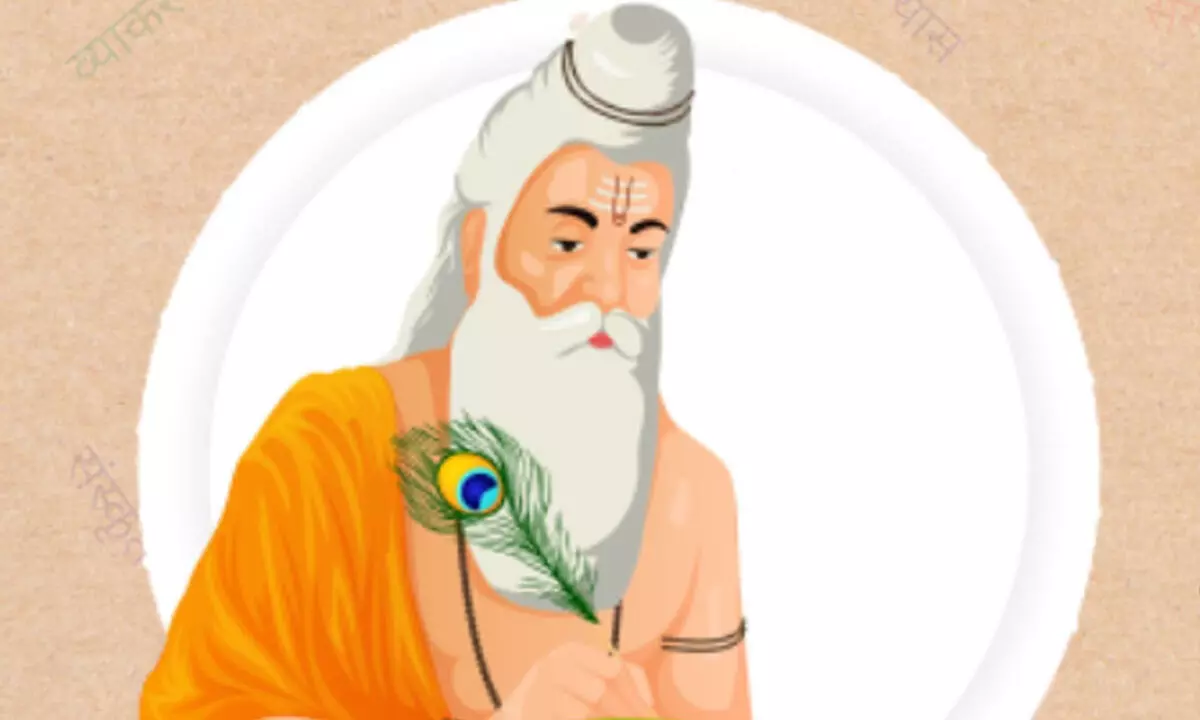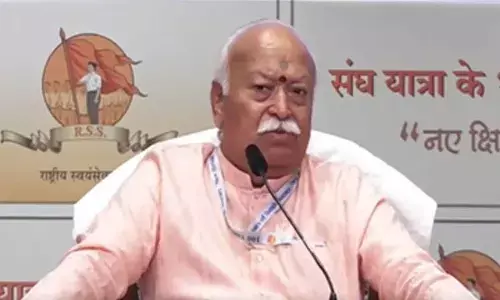Sanskrit – Constructed by Thinkers?

If we have some acquaintance with Sanskrit, we come to wonder whether it is a consciously constructed language, meant to suit philosophical thinking.
If we have some acquaintance with Sanskrit, we come to wonder whether it is a consciously constructed language, meant to suit philosophical thinking. The scientific structure of language puzzled grammarians as well as computer programmers. So does the diction, as we can see from the play of gender in Sanskrit.
As in English we have three genders – masculine, feminine and neuter. We can clearly make out the gender in English, but we cannot easily make out the gender in Sanskrit. In English the sex of a person or any living being is clear and hence determines gender. All lifeless things, ideas, concepts, are in neuter. They are abstract nouns in English, but they are no longer abstract in Sanskrit, they are persons. They are men and women, husband and wife or son.
An interesting couplet goes like this. The human ego (ahamkara) is compared to the husband, and the thinking aspect of mind, called intellect (buddhi) is the wife. Ego, the husband, tells intellect (the wife), ‘do not wake me up. I am happy in my sleep. If I wake up, you and I, and the whole world would no longer exist’.
We may recall that mind has four functions – manas, the function of recording the cognitions received through sense organs, buddhi, the function of analyzing what is received and evaluating it, chittam, the function of storing the information and recalling it when needed, and ahamkara, the function of ego, which says, ‘I am so and so, I know this, I accomplished this’. The last function feels that it is the master of the body.
The above couplet will be understood if we know what Vedanta says about liberation. The small ego of the seeker dissolves when he/she attains the awareness that he/she is not different from the Supreme Reality. Even the world is seen as a manifestation of Brahman. Such awareness is achieved by buddhi, the wife, when it logically enquires into one’s own nature. Buddhi tries to awaken the husband, but the husband does not want to lose his little ego, his identity that he is an important person, a leader, a scholar, a rich person, a strong person and so on. Hence, the ego tells the wife not to wake him up. He is happy in sleep, which is ignorance.
Our attitude to nature is seen in the gender of words. For instance, the word earth is neuter in English. But the Sanskrit words, Prithvi, Bhumi, and several others, referring to earth, are all in feminine gender. We respect the earth as it sustains us and hence treat it as our mother. In mythological texts we often see this lady Earth running to Vishnu, complaining about the ascendance of evil on earth. It cannot be controlled by anyone other than Vishnu. He assures her of some action and arrives in some form to restore order. Such a descent from heaven is called an avatara (literally, descent). Hence, earth is also treated as the wife of Vishnu. We see these two women, Sri Devi (prosperity, wealth) and Bhu Devi (earth) represented as two wives in most Vishnu temples. One may think that Vishnu takes from one wife and gives to the other. But they are two aspects of Vishnu’s function of sustaining the creation. In most cases, the wives of the deities are usually their powers, represented as wives.
All the names of rivers are feminine in gender. Great civilizations arose along the banks of rivers such as Sindhu (Indus), Ganga, Nile and others. We do respect the rivers as our mothers and hold them as holy. As all rivers are feminine, the Ocean god, Samudra (masculine) is said to be the husband of all these rivers. All of them flow into the ocean, as though embracing.
For some relief from Vedanta, we may see a couplet talking about the agony of a lover. In the absence of technology, lovers used to send trusted messengers to their lovers in the olden days. Having sent his mind as a messenger to his ladylove, the man laments, ‘oh, I have been cheated by Panini, who said that mind is neuter in gender. But my mind is entangled there with my ladylove and does not come back to me’.
We need some experience with the language and its literature to appreciate the wisdom of people who developed this language.
(The writer is a former DGP, Andhra Pradesh)














